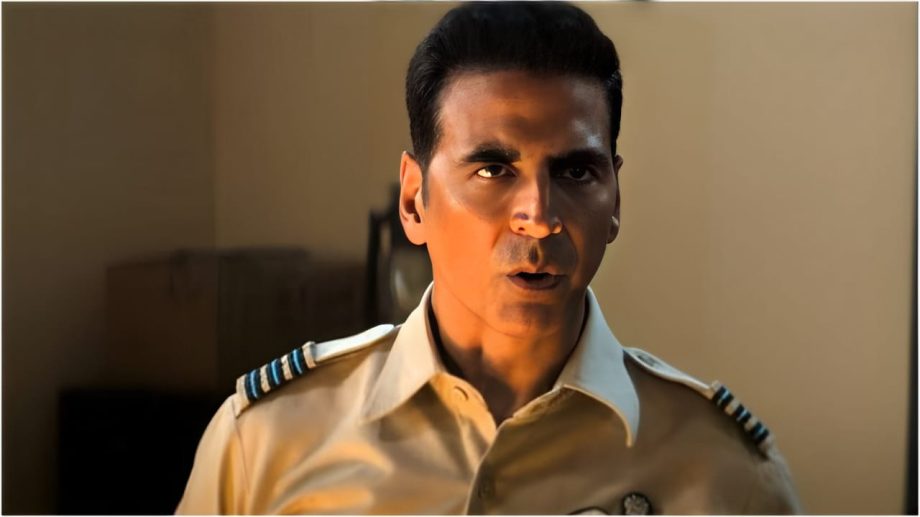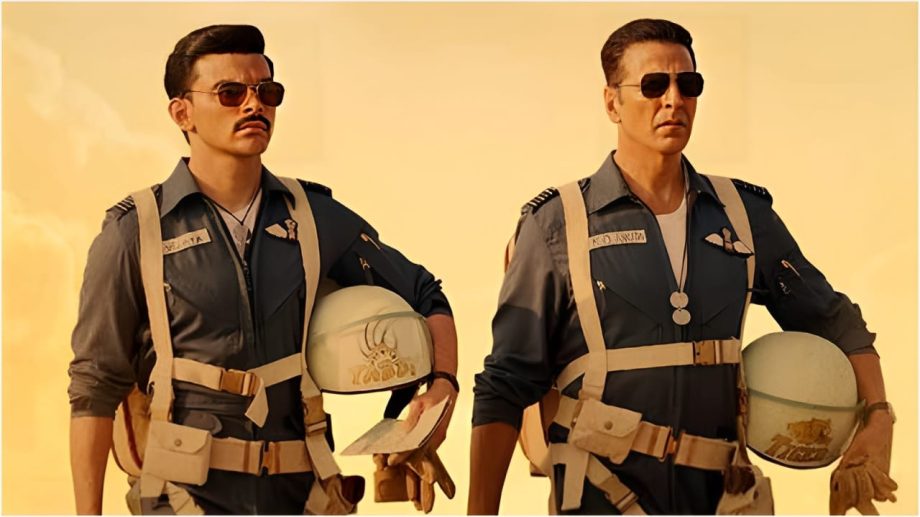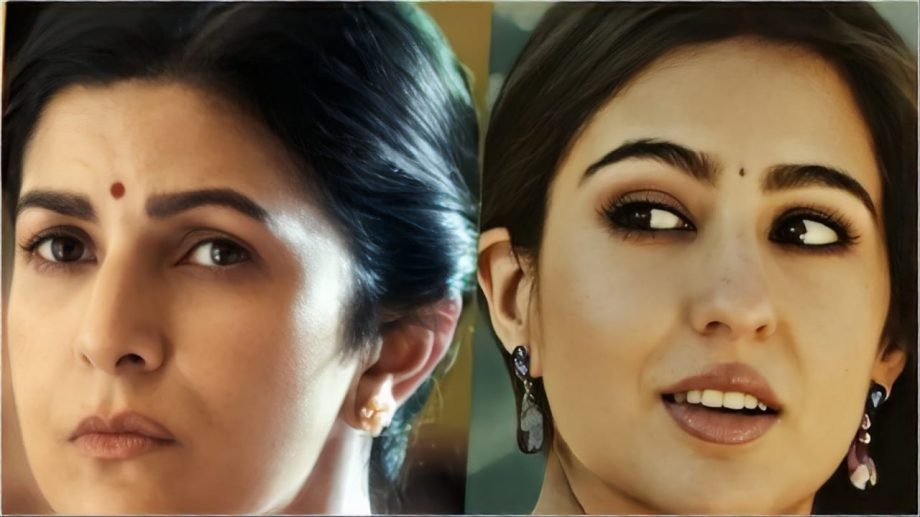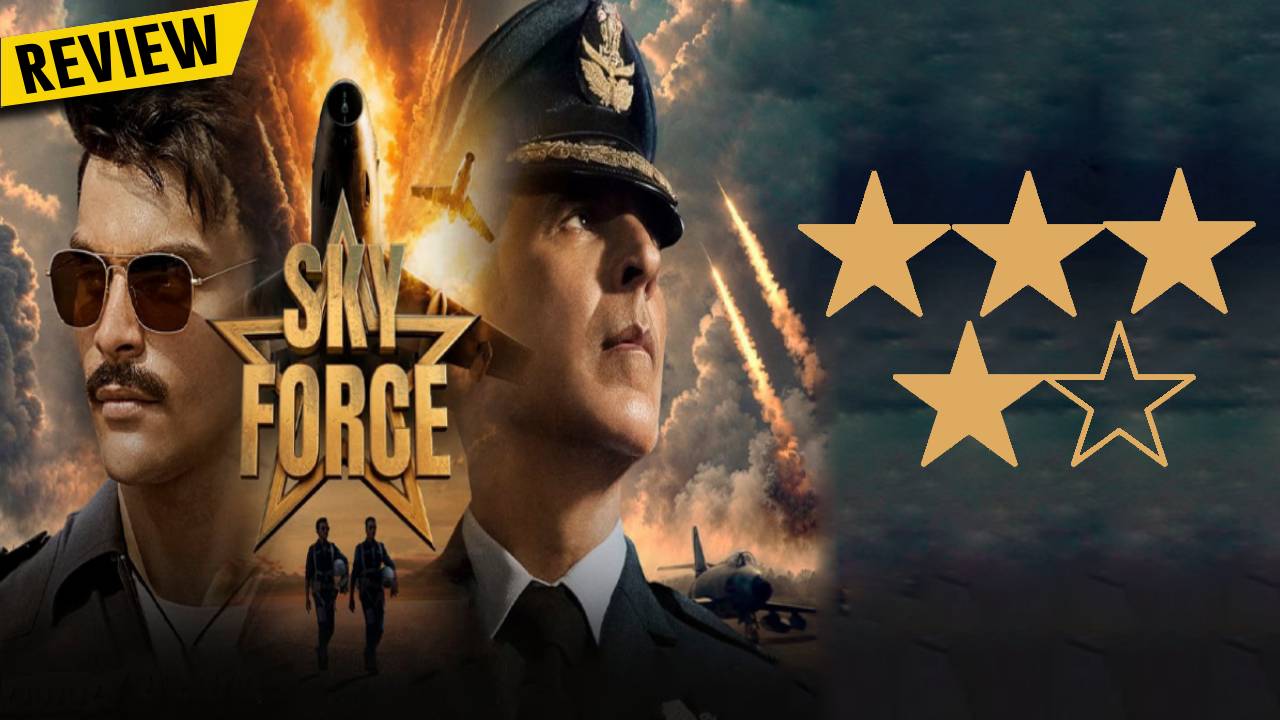Rating – **** (4/5)
Cast – Akshay Kumar, Veer Pahariya, Sara Ali Khan, Nimrat Kaur, Sharad Kelkar
Producer by: Maddock Films & Jio Studios
Director – Abhishek Anil Kapur and Sandeep Kewlani
As Republic Day approaches, Dinesh Vijan’s Maddock Films & Jio Studios presents Sky Force takes flight, delivering a cinematic experience as sharp and precise as a fighter jet. Directed by Abhishek Anil Kapur and Sandeep Kewlani, the film is a moving homage to the valor of India’s Air Force pilots, set against the backdrop of the 1965 Indo-Pakistani War. It seamlessly blends aerial combat with human drama, creating a narrative that resonates on multiple levels.
At the heart of the film is the Indian Air Force’s first retaliatory airstrike during the 1965 war—a turning point that solidified the force’s reputation. Akshay Kumar steps into the role of Wing Commander K.O. Ahuja (O.P. Taneja), a leader tasked with uncovering the truth behind a missing pilot. His journey becomes an emotional and strategic battle, particularly when he discovers that T. Vijaya, a young pilot presumed dead after an audacious attack on the Sargodha airbase, might still be alive.

Veer Pahariya, in his debut, shoulders the role of Vijaya, modeled after Squadron Leader A.B. Devayya. Pahariya delivers a compelling performance, charting the arc of a brash, rebellious pilot who evolves into a symbol of sacrifice. His portrayal captures the tension of duty, survival, and selflessness, making his screen presence a key anchor in the film.
Akshay Kumar, as Wing Commander Ahuja, commands attention without overstating his role. As a leader, protector, and father figure to his squadron, Kumar portrays the quiet yet immense weight of responsibility. Recent years have been hit-and-miss for Kumar, but his performance here is restrained yet effective, grounding the narrative with conviction.

Sara Ali Khan, as Vijaya’s pregnant wife, and Nimrat Kaur, as Ahuja’s wife, add emotional heft to the story. Khan’s portrayal of longing and resilience, juxtaposed against the chaos of war, brings the story back to its human core. Kaur’s role as Ahuja’s anchor is understated yet vital, offering a glimpse into the emotional toll war takes on families.
Also being reliable as always and delivering a subdued and impactful performance yet again is Sharad Kelkar. Time and again, he has continued to prove the range he has an actor and this film and the role is yet another reminder of that.
The film’s standout element is its aerial combat sequences. Kapur and Kewlani ensure the action is gripping without overwhelming the story. The dogfights, missile strikes, and intricate flight manoeuvres are executed with precision, using a blend of practical effects and VFX that elevate the experience. Unlike Fighter, which generated significant buzz before its release, Sky Force lands with less noise but delivers with confidence.

The orchestral score amplifies the intensity of the combat scenes while adding weight to quieter moments. The music mirrors the stakes of each mission, underscoring the film’s broader themes of courage, loyalty, and sacrifice.
Sky Force avoids the pitfalls of typical war films by balancing spectacle with substance. It honors not only the soldiers in the air but also those who support and endure their sacrifices on the ground. The narrative isn’t just about heroics; it’s about the human cost of duty and the bonds that hold individuals together in the face of adversity.
With a strong cast, well-executed action, and a focus on authenticity, Sky Force is a stirring tribute to the Indian Air Force. It’s a story that transcends the confines of a genre, offering an experience that’s as thought-provoking as it is entertaining. This isn’t just a film about war—it’s a story of humanity, resilience, and the unwavering spirit of those who serve. Whether you’re drawn by the promise of high-octane action or the emotional depth of the narrative, Sky Force delivers a cinematic experience worth celebrating.


